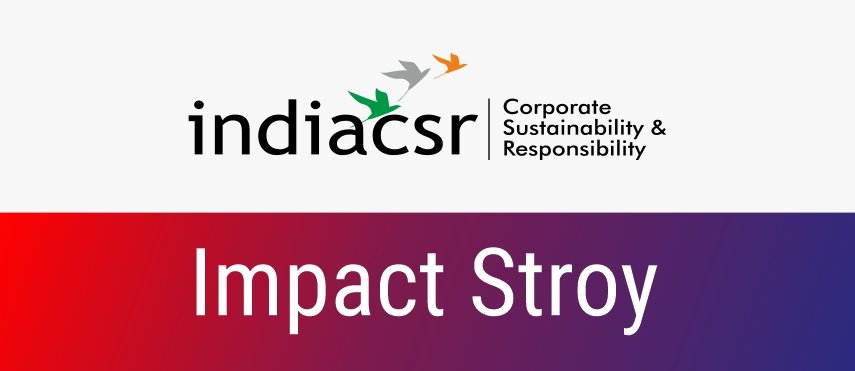How can Corporates strategise and team up to achieve Sustainable Development Goal 4?
Often and widely misinterpreted as a by-product of the Pandemic, the digital divide was already prevalent in India. It just got accentuated and resulted in visible learning gaps (NAS 2021). 65% of the country’s population lives in rural areas and only 52% rural households use the internet.
Reasons?
While the government is diligently working to enhance digitalization in rural India, lack of infrastructure remains a significant obstacle contributing to the digital divide and visible learning gaps because of:
- Affordability
The affordability gap has become a critical factor leading to the Digital Divide, between rural and urban areas. The high cost of devices that allow internet access, and digital services often leave communities disadvantaged in education, job opportunities, and access to essential information & digital literacy.
- Accessibility
Poor internet connectivity and load shedding/ dearth of electricity supply lead to limited to no access in some areas leads to the problem of access. Inadequate infrastructure in rural areas, leave the population with unreliable internet connections, power supply for days, hindering their ability to access online/digital education or remote learning opportunities. This directly impacts our learners.

Steps Taken to address the digital divide
The government has taken decisive steps. One of the examples of it is the revision in the ICT@Smaragra Shiksha program.
Over the years, as schools continued to integrate computer-based ICT labs, significant issues emerged such as increasing cost of maintaining these labs. Further, these labs were not being utilized to their full potential by teachers and students alike. This underutilization stemmed from various factors, including the complexity of wiring and hardware, unreliable internet connectivity, and infrastructure-requirement. Consequently, the digital divide persisted, and learning gaps persisted.
In response to these challenges, the Ministry of Education initiated a new approach in March 2019. This innovative approach included the provision of tablets, laptops, notebooks, and a charging rack as part of the revamped ICT Lab Scheme.
“This shift towards easy to set up, manage and use technological solutions such as tablets/notebooks/laptops aligns better with the preferences and familiarity of both teachers and students, marking a significant stride in bridging the digital divide”, said Vishal Goswamy, Assistant Director – Marketing & Growth at iDream Education

Way Forward: Can Collaboration of Corporates amongst themselves and with Ecosystem Partners solve?
Here are some points corporates can consider when strategizing their CSR initiatives:
- Alleviating Social & Economic Status of rural households: This can happen through high scale digital, skill based and financial literacy programmes and prioritizing Education as high as food security, health, protection and livelihood. Addressing education enables breaking the intergenerational chain of poverty, inequality and child labour. Therefore this theme should be a must have in all programmes. When planning corporate social responsibility (CSR) initiatives to support Sustainable Development Goal 4 (SDG 4), corporates should prioritize expanding access to digital education in untouched remote areas through Smart ICT Labs that work without internet and have little to no dependence on electricity as these addresses the challenges of inconsistent power supply and unreliable internet connectivity. Solar energy based ICT labs and Smart Classes are upcoming and solving the problem of electricity and more, by providing clean energy. With collaboration and investments in each other’s programmes instead of working in silos, corporates can bring massive shifts.
- Affordable EdTech Solutions: The investment associated with EdTech solutions catering to diverse educational needs often hinder the widespread adoption of educational technology. To enable cost effective digital learning solutions, corporations should opt for a single, comprehensive platform compatible with all devices and operating systems that caters to the diverse learning requirements and capabilities of every student and teacher. This includes enabling a cost effective ecosystem of mobile learning app, blended learning in a smart classroom, Smart ICT labs or individual learning Tablets that fosters learning & growth of teachers and students.
- Geographical Reach: When strategizing digital education CSR initiatives for remote locations across India, corporates should choose a solution designed to cater to diverse geographical settings, such as portable ICT labs that are user-friendly and low-maintenance, setup in any classroom, hall, or laboratory.

Vishal Goswamy, Assistant Director of Marketing and Growth at iDream Education, further recommends tablets/notebooks based ICT labs, as this allows corporates to align their CSR initiatives with the ICT initiative of the Government. iPrep Digital Library is equipped with the capability to simultaneously charge multiple tablets and notebooks. Devices once charged, can be used for 7-8 hours, that is for the entire school duration without needing power supply or the Internet. Solar enabled solutions are also available ensuring no dependence at all on a regular power supply. Devices are preloaded with rich digital content for K-12 all subjects including animated video lessons, syllabus books, practice with instant feedback, practicals, notes and assessments with exam preparation in English, Hindi and other language mediums and works both online and offline. Vishal then concluded by stating Digital Library is one technological solution that eliminates the issue of inadequate infrastructure and internet connectivity.
Case studies:
- Tablets in the digital library weave a tale of joyful learning in the Modern Montessori School, Rampur UP.
- Tablet-based digital libraries improving girls’ education in government school in Shimla by enhancing access to diverse educational resources.
iDream Education, an Edtech company working to facilitate universal access to learning and growth, remains dedicated to finetune its digital learning solutions to narrow the digital divide and alleviate disparities in access to digital education. It partners with System Integrators, CSR organizations, NGOs, and other ecosystem collaborators engaged in educational initiatives for schools and students to deliver its digital content and learning platform through Smart Classrooms, ICT Labs, Tablets, Notebooks and Mobile Devices.
If in case you would like to know more about digital learning solutions of iDream Education, visit their website, www.idreameducation.org or write to them at share@idreameducation.org







